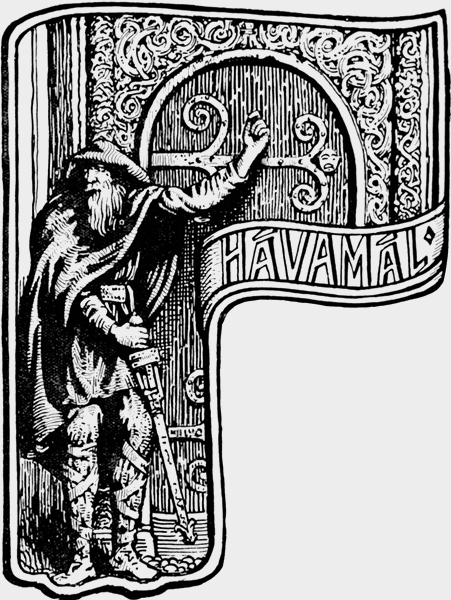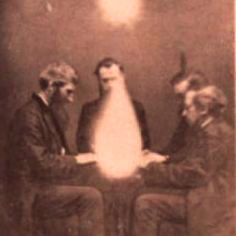Saturday, October 27, 2018 9:30am– 4:30pm
A daylong seminar led by
Michael Gellert, MA, LCSW
Contact hours: 6 CE contact hours for Licensed NYS Social Workers, Psychoanalysts and Creative Arts Therapists for this program.
An exploration of the Abrahamic God's evolution as depicted in Judaism, Christianity, and Islam.
The feeling remains that God is on the journey, too. – St. Teresa of Avila
All journeys have secret destinations of which the traveler is unaware. – Martin Buber
The epic story of the Abrahamic God's inner journey begins in the Hebrew Bible, the common source of Judaism, Christianity, and Islam. He emerges here as a living, textured personality as tormented as a Shakespearean character and as divided against humanity as the devil who personifies his dark side. Yet in heroic fashion, he embarks on a journey to greater consciousness, stretching into himself in the Talmud, New Testament, Qur'an, and Gnostic writings. Then finally, with and through the Jewish, Christian, and Islamic mystics, he discovers his true self as the absolute Godhead. He takes up residence in their psyches as their own Divine Mind or true self. What God learned from his journey might be something that we in turn could learn from and that could help us at the dawn of the twenty-first century. In this way, God's inner journey becomes a metaphor for our own.
The Biblical God's PTSD and Other Afflictions
An exploration of the origins, features, and healing of Yahweh's deep-seated wound and their implications for us.
The degree of character flexibility, the ability to open oneself to the outside world or to close oneself to it, depending on the situation, constitutes the difference between a reality-oriented and a neurotic character structure. – Wilhelm Reich
This presentation will focus on the profound disappointments and suffering that the biblical God encountered on his inner journey toward greater consciousness. We will explore how these contributed toward his trauma and other existential and clinical afflictions as illustrated in the Hebrew Bible. We will also discuss what it means historically and for us today that the God of Western and Islamic civilization suffered from these conditions. Special attention will be given to what Jung, among others, has called the "Yahweh complex." Our approach to God will be as a figure of the religious imagination rather than as a representation of an objective Godhead.
Tuition
Members/Students, $100;
General Public, $110.
You can pay online using your amazon account.
If you pay online, please also email us your name, address, email, and the name of the workshop for which you have paid.
Gellert workshop: non member ($110)
Gellert workshop: member ($100)
Registration and Payment Form for mail-in and phone payments
Gellert workshop registration (PDF format)
Learning Objectives
- To describe how the story of the Abrahamic God mirrors the evolution of our human experience of him and of our own consciousness.
- To explore what the core images and ideas of Judaism, Christianity, and Islam reveal about the psychological nature of religious experience.
- To recognize how the many different traditions of mysticism share the same universal psychodynamics.
- To summarize what it means historically and for us today that the God of Western and Islamic civilization suffered from PTSD and other afflictions.
- To explain the nature and effects of the Yahweh complex.
Michael Gellert, MA, LCSW, is a Jungian analyst practicing in Los Angeles and Pasadena, California and former Director of Training of the C. G. Jung Institute of Los Angeles. He is the author of Modern Mysticism, The Way of the Small, The Divine Mind: Exploring the Psychological History of God's Inner Journey, and America's Identity Crisis: The Death and Rebirth of the American Vision (originally published as The Fate of America). His website is michaelgellert.com.
Contact hours: Six CE contact hours for Licensed NYS Social Workers and Psychoanalysts for this program.
The C.G. Jung Foundation for Analytical Psychology, Inc., SW CPE, is recognized by New York State Education Department's State Board of Social Work as an approved provider of continuing education for licensed social workers #0350.
The C.G. Jung Foundation for Analytical Psychology, Inc. is recognized by the New York State Education Department's State Board for Mental Health Practitioners as an approved provider of continuing education for licensed psychoanalysts. #P-0015.
C.G. Jung Foundation for Analytical Psychology, Inc. is recognized by the New York State Education Department's State Board for Mental Health Practitioners as an approved provider of continuing education for licensed creative arts therapists, #CAT-0068
Saturday, October 27, 2018: 9:30 am–4:30 p.m.
at the C.G. Jung Foundation, 28 East 39th Street, New York City



